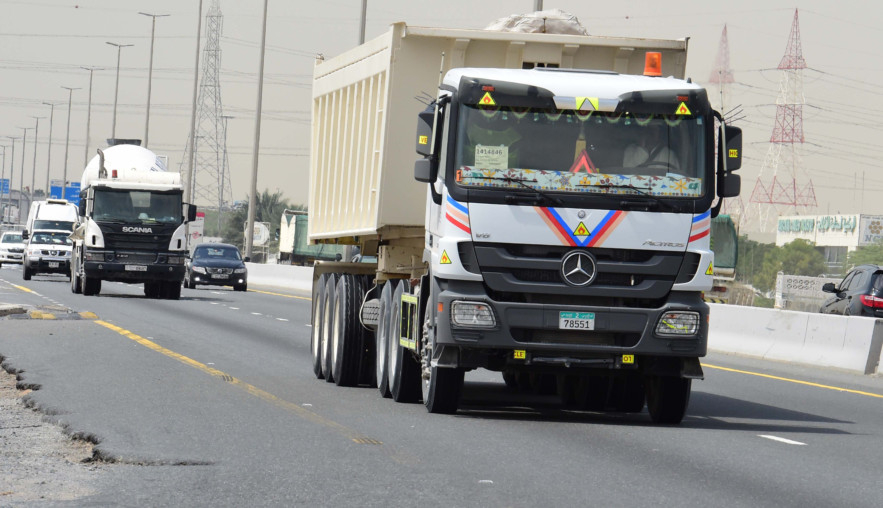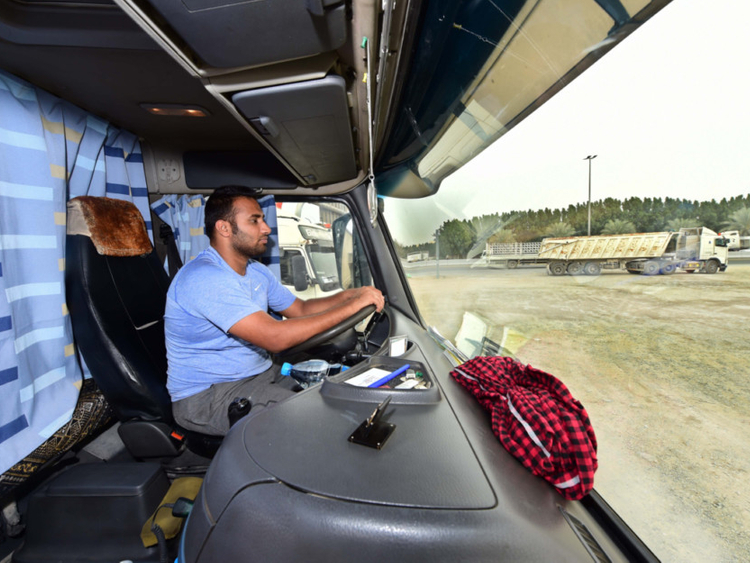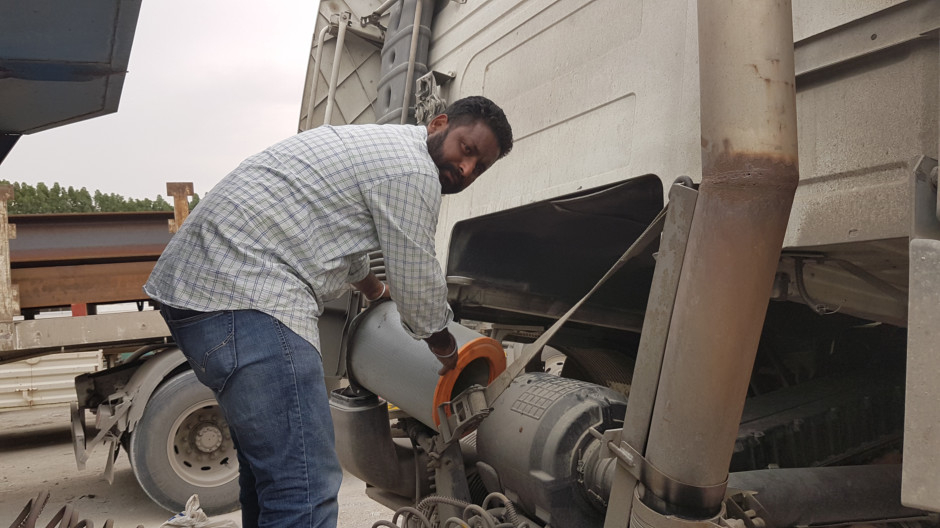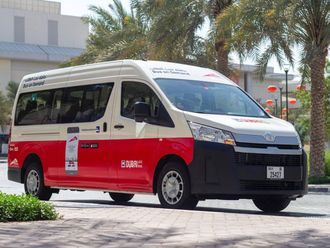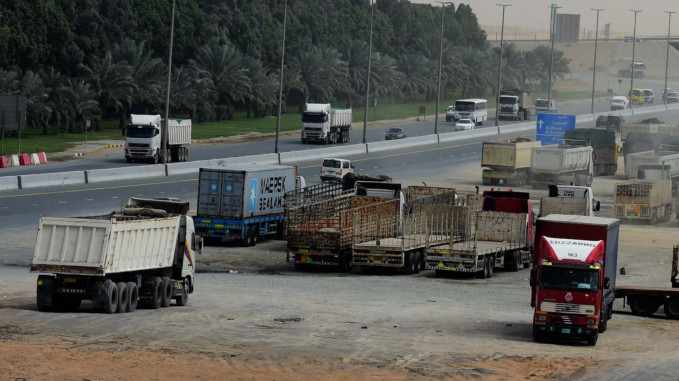
Sharjah: Authorities are building more truck rest stops as part of measures to prevent deadly accidents caused by tired and stressed truck drivers, a senior official told Gulf News on Monday, days after a truck rammed into a car, killing three young siblings on the spot.
In Friday’s crash in Al Dhaid, the mother, who was driving, and two other children were seriously hurt. The trucker had jumped a red light — and hit the car at the intersection.
Major Abdul Rahman Al Owais, head of the Traffic and Patrols Department of the Central Region Police in Sharjah emirate, told Gulf News that transport companies need to ensure their truck drivers are not overworked or frustrated for the sake of their safety as well as the safety of other road users.
He added that authorities are also taking steps to increase safety and convenience for truckers, who often drive more than 16 hours a day.
Maj Al Owais said the Ministry of Interior is planning a new project to provide more rest stops for trucks, taking into consideration the distance between each stop on particular roads. For example, if a truck driver leaves from Abu Dhabi, there will be one stop every 40km.
The new rest stops will include amenities such as washrooms, supermarkets, and mosques, Maj Al Owais said.
Live tracking
Sharjah Police recently also introduced a new system to crack down on errant truck drivers using roads during prohibited times. It involves placing radars and cameras on nine roads that are frequently used by trucks.
The electronic system can also issue approvals for trucks needed quickly to facilitate their movements at special times or under special circumstances.
The roads that have installed the new radars are Shaikh Mohammad Bin Zayed Road, Maliha Road, Sharjah International Airport Road, Al Dhaid Road, Al Dhaid-Al Madam Road, Emirates Road, Al Hamriyah Road, and Shaikh Khalifa Road.
The new system will also help police in tracking trucks that are suspected to be overloaded or parked at prohibited sites on roads.
Sharjah Police pointed out that special parking areas for trucks will soon be allocated on these roads and they will be constructed by the authorities.
Welcome move
Truck drivers said more rest stops will improve the safety and quality of their demanding jobs, which often involves driving 16 hours a day. They said truckers’ safety also means more safety for other road users as truckers are less likely to cause an accident if they are rested and relaxed.
Indian trucker Parminder Singh, 30, on Monday said he had been on the road for 24 hours. “I left home on Sunday afternoon and haven’t been back.
All my time has been spent on the road, expect for when I was waiting for my turn to offload my cargo in Dubai. I caught a few hours of sleep while waiting in line,” Singh added.
“There are some truck rest stops on some highways but we need more. We can’t pull over on the side of the road if we’re tired because that is dangerous as well. Plus, we get fined if we do that.”
Another driver, Harjinder, 31, also from India, added that he was aware of new cameras that take pictures of trucks using the road during prohibited times. “I heard the fine is Dh1,600 plus four black points. There is also the possibility of impounding the truck for a week,” Harjinder added.
Truckers also said authorities should check if the truck is overloaded, as braking and controlling the truck becomes dangerous when the cargo is too heavy. “This can be done by checking the cargo papers that mention what the cargo is and how heavy it is. There are also specially designed truck weighing scales that can be dispatched — towed by a van — to the scene of a roadside inspection,” a driver said on condition of anonymity.
He added: “As far as I know, random spot weight checks are not being done frequently enough. As a general rule, a 40-foot trailer can safely handle 25-30 tonnes of cargo. Some truckers haul double that weight because they get paid more, or because their company insists on it. That’s asking for trouble.”


